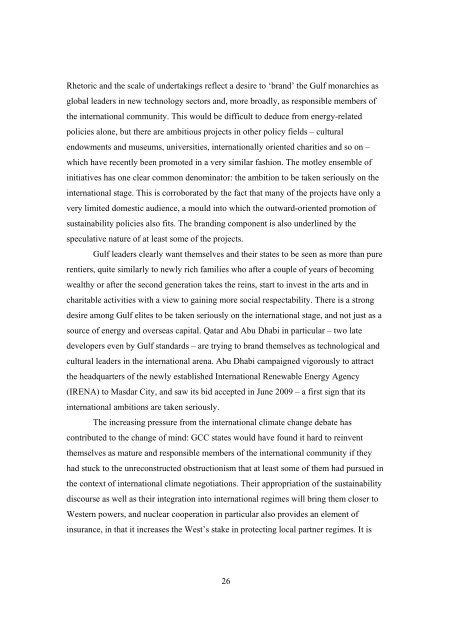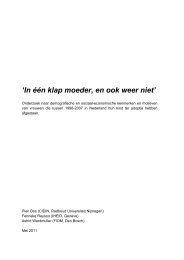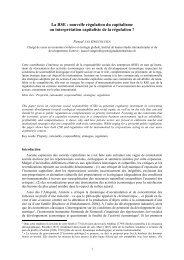PDF - Graduate Institute of International and Development Studies
PDF - Graduate Institute of International and Development Studies
PDF - Graduate Institute of International and Development Studies
You also want an ePaper? Increase the reach of your titles
YUMPU automatically turns print PDFs into web optimized ePapers that Google loves.
Rhetoric <strong>and</strong> the scale <strong>of</strong> undertakings reflect a desire to ‘br<strong>and</strong>’ the Gulf monarchies as<br />
global leaders in new technology sectors <strong>and</strong>, more broadly, as responsible members <strong>of</strong><br />
the international community. This would be difficult to deduce from energy-related<br />
policies alone, but there are ambitious projects in other policy fields – cultural<br />
endowments <strong>and</strong> museums, universities, internationally oriented charities <strong>and</strong> so on –<br />
which have recently been promoted in a very similar fashion. The motley ensemble <strong>of</strong><br />
initiatives has one clear common denominator: the ambition to be taken seriously on the<br />
international stage. This is corroborated by the fact that many <strong>of</strong> the projects have only a<br />
very limited domestic audience, a mould into which the outward-oriented promotion <strong>of</strong><br />
sustainability policies also fits. The br<strong>and</strong>ing component is also underlined by the<br />
speculative nature <strong>of</strong> at least some <strong>of</strong> the projects.<br />
Gulf leaders clearly want themselves <strong>and</strong> their states to be seen as more than pure<br />
rentiers, quite similarly to newly rich families who after a couple <strong>of</strong> years <strong>of</strong> becoming<br />
wealthy or after the second generation takes the reins, start to invest in the arts <strong>and</strong> in<br />
charitable activities with a view to gaining more social respectability. There is a strong<br />
desire among Gulf elites to be taken seriously on the international stage, <strong>and</strong> not just as a<br />
source <strong>of</strong> energy <strong>and</strong> overseas capital. Qatar <strong>and</strong> Abu Dhabi in particular – two late<br />
developers even by Gulf st<strong>and</strong>ards – are trying to br<strong>and</strong> themselves as technological <strong>and</strong><br />
cultural leaders in the international arena. Abu Dhabi campaigned vigorously to attract<br />
the headquarters <strong>of</strong> the newly established <strong>International</strong> Renewable Energy Agency<br />
(IRENA) to Masdar City, <strong>and</strong> saw its bid accepted in June 2009 – a first sign that its<br />
international ambitions are taken seriously.<br />
The increasing pressure from the international climate change debate has<br />
contributed to the change <strong>of</strong> mind: GCC states would have found it hard to reinvent<br />
themselves as mature <strong>and</strong> responsible members <strong>of</strong> the international community if they<br />
had stuck to the unreconstructed obstructionism that at least some <strong>of</strong> them had pursued in<br />
the context <strong>of</strong> international climate negotiations. Their appropriation <strong>of</strong> the sustainability<br />
discourse as well as their integration into international regimes will bring them closer to<br />
Western powers, <strong>and</strong> nuclear cooperation in particular also provides an element <strong>of</strong><br />
insurance, in that it increases the West’s stake in protecting local partner regimes. It is<br />
26




